In today’s competitive business landscape, effective human resource (HR) management is pivotal to an organization’s success. Tracking the right HR metrics provides valuable insights into workforce dynamics, employee performance, and overall organizational health. By leveraging these metrics, companies can make informed decisions, enhance employee satisfaction, and drive business growth.
Here are 10 essential HR metrics every company should monitor:
1. Employee Turnover Rate
What It Is:
The percentage of employees who leave your organization over a specific period.
Why It Matters:
High turnover can indicate underlying issues such as poor job satisfaction, inadequate compensation, or ineffective management. Understanding turnover rates helps in identifying patterns and implementing retention strategies.
How to Calculate:
Employee Turnover Rate=(Average Number of Employees Number of Departures)×100
2. Time to Hire
What It Is:
The average number of days it takes to fill an open position from the date it was advertised to the date a candidate accepts the offer.
Why It Matters:
A prolonged hiring process can lead to lost productivity and increased recruitment costs. Streamlining the hiring process ensures that your organization fills critical roles promptly.
How to Calculate:
Time to Hire = Number of Positions Filled Total Days to Fill All Positions
3. Employee Engagement Score
What It Is:
A measure of how committed and motivated employees are toward their work and the organization.
Why It Matters:
High engagement is linked to increased productivity, lower absenteeism, and higher retention rates. Engaged employees are more likely to contribute positively to the company’s goals.
How to Measure:
Conduct regular employee surveys that assess various aspects of engagement, such as job satisfaction, recognition, and alignment with company values.
4. Absenteeism Rate
What It Is:
The percentage of workdays lost due to employee absences.
Why It Matters:
High absenteeism can disrupt operations and indicate issues like poor workplace morale or health-related problems. Monitoring absenteeism helps in addressing these underlying causes.
How to Calculate:
Absenteeism Rate=(Total Available Workdays Total Number of Absent Days)×100
5. Training and Development ROI
What It Is:
The return on investment for training and development programs.
Why It Matters:
Investing in employee development can enhance skills, improve performance, and increase job satisfaction. Calculating ROI ensures that training programs are effective and aligned with business objectives.
How to Calculate:
Training ROI=(Cost of Training Benefits of Training−Cost of Training)×100
6. Cost per Hire
What It Is:
The total cost incurred in recruiting a new employee.
Why It Matters:
Understanding the cost per hire helps in budgeting and optimizing recruitment strategies. It includes expenses like advertising, recruiter fees, and onboarding costs.
How to Calculate:
Cost per Hire = Number of Hires Total Recruitment Costs
7. Employee Productivity Rate
What It Is:
A measure of the output produced by employees within a specific timeframe.
Why It Matters:
High productivity indicates efficient workforce performance, while low productivity may highlight the need for process improvements or additional training.
How to Measure:
Evaluate output against set goals or benchmarks. This can vary by industry but often involves tracking sales figures, project completions, or other relevant performance indicators.
8. Diversity and Inclusion Metrics
What It Is:
Metrics that assess the diversity of your workforce and the inclusivity of your workplace culture.
Why It Matters:
A diverse and inclusive workplace fosters creativity, improves employee satisfaction, and enhances the company’s reputation. Tracking these metrics helps in promoting equality and identifying areas for improvement.
How to Measure:
Analyze the demographic composition of your workforce, monitor hiring and promotion rates across different groups, and assess employee perceptions of inclusion through surveys.
9. Employee Satisfaction Index / Employer Net Promoter Score
What It Is:
A metric that gauges overall employee satisfaction within the organization.
Why It Matters:
Satisfied employees are more likely to be productive, loyal, and motivated. High satisfaction levels contribute to a positive workplace culture and reduced turnover.
How to Measure:
Use employee satisfaction surveys that cover aspects like work-life balance, management effectiveness, and workplace environment.
10. Performance Management Metrics
What It Is:
Metrics that evaluate employee performance against predefined goals and objectives.
Why It Matters:
Effective performance management ensures that employees are aligned with organizational goals, helps identify high performers, and highlights areas needing improvement.
How to Measure:
Track individual performance reviews, goal attainment rates, and the distribution of performance ratings across the organization.
Why Tracking HR Metrics is Crucial
Monitoring these HR metrics provides a comprehensive view of your workforce’s health and performance. By analyzing these data points, organizations can:
- Enhance Decision-Making: Data-driven insights lead to more informed and strategic HR decisions.
- Improve Employee Retention: Identifying and addressing factors that contribute to turnover and dissatisfaction.
- Boost Productivity: Understanding and optimizing factors that influence employee performance.
- Ensure Compliance: Maintaining adherence to labor laws and regulations through consistent monitoring.
- Foster a Positive Work Environment: Creating a culture that promotes engagement, satisfaction, and inclusivity.
Conclusion
Incorporating these 10 HR metrics into your regular assessment routine can transform your HR strategy, driving both employee satisfaction and organizational success. At Atlas HR Technologies, we specialize in providing the tools and insights needed to track and analyze these essential metrics, empowering your business to thrive in a dynamic environment.
Ready to optimize your HR performance? Contact us today to learn how our innovative HR solutions can help your organization achieve its goals.
About Atlas HR Technologies
Atlas HR Technologies is dedicated to revolutionizing HR management through cutting-edge solutions and strategic insights. Our mission is to empower organizations by enhancing human capital, driving growth, and fostering sustainable business success. With our comprehensive suite of HR services, we help businesses navigate workforce challenges, optimize talent management, and build a thriving work environment.

